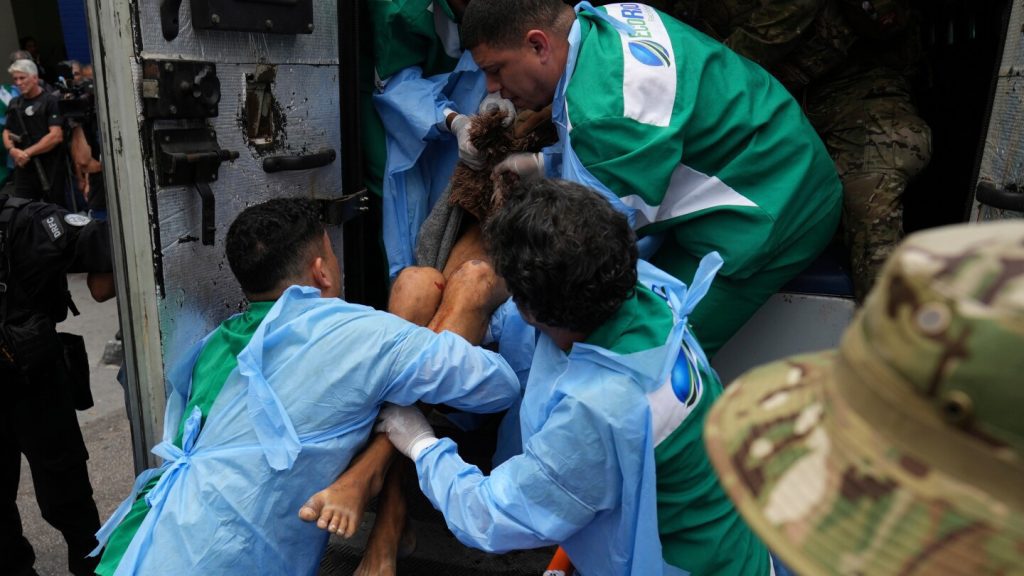Massive Police Operation in Rio de Janeiro
On Tuesday, approximately 2,500 Brazilian police and military personnel executed a large-scale raid against a drug trafficking organization in Rio de Janeiro. This operation resulted in the arrest of 81 individuals and violent confrontations that reportedly left at least 60 suspects and four police officers dead.
Operation Details
The initiative utilized helicopters and armored vehicles and primarily targeted the infamous Red Command gang within the expansive low-income favelas of Complexo de Alemao and Penha. Officials stated that this was one of the most violent police operations in Brazil’s recent memory, prompting human rights groups to call for investigations into the fatalities incurred during the raid.
Official Statements
Rio’s state Governor Claudio Castro noted on a social media post that the operation marked the city’s largest such effort in history. The state’s government claimed that 93 rifles and over half a ton of drugs were confiscated during the raid, asserting that those killed had resisted police actions.
Casualties and Reactions
In the aftermath, four police officers were reported dead, and the civil police emphasized that the violent actions of the criminals would face consequences. Meanwhile, the United Nations Human Rights office expressed horror at the operation and urged thorough investigations, reminding authorities of their obligations under international law.
Impacts on Community
Reports of violence left an undetermined number of people injured. Following the raid, suspected gang members blocked roads throughout northern and southeastern Rio, hijacking at least 70 buses, causing significant damage, according to local bus organizations.
Political Reactions and Recommendations
Governor Castro criticized the federal government’s support in combating crime, taking a jab at the leftist administration of President Luiz Inácio Lula da Silva. Contrarily, members of Lula’s government acknowledged the need for coordinated efforts while citing recent federal actions against money laundering as progress in addressing organized crime.
Expert Opinions and Historical Context
This police operation has drawn comparisons to historic raids, which have often resulted in significant casualties. Luis Flavio Sapori, a public safety sociologist, indicated that while raids of this nature are frequent, the scale of fatalities this time was unprecedented. He criticized the approach as ultimately inefficient, targeting lower-level gang members while failing to capture higher-ups within criminal organizations.
Community Organizations’ Concerns
The Marielle Franco Institute, established to advocate for residents living in favelas, criticized the raid, characterizing it as an extermination policy that exacerbates the dangers facing marginalized communities. They emphasized the need for constructive public safety strategies instead of violent confrontations.



